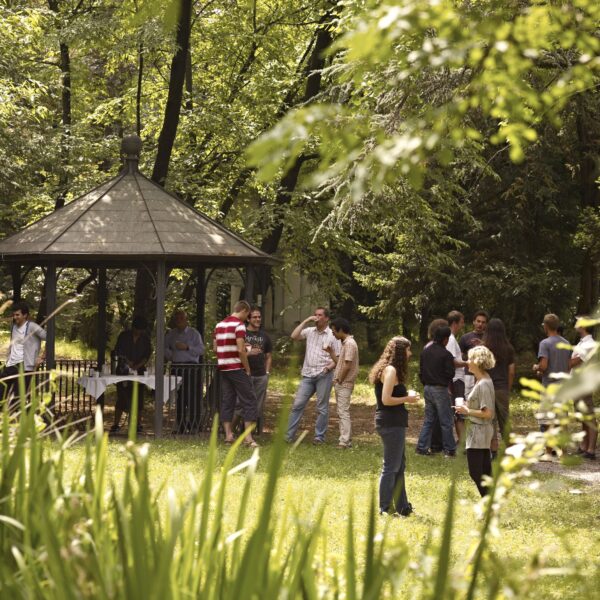Past Workshops
-
This Humboldt Kolleg will bring together key experimenters and theorists in the physics of low-energy nuclear science to debate recent achievements and discuss in depth new perspectives for further progress in the understanding of the properties and production mechanisms of the heaviest nuclei.More info
-
The number and quality of laser spectroscopy studies on short-lived nuclei to explore changes in the nuclear size, spin, and moments for isotopes far away from stability, has increased tremendously in the last decade.More info
-
The HAdron SPEctroscopy CenTer (HASPECT) brings together theorists and experimentalists with goal to develop the necessary tools for the future analysis in hadron physics.More info
-
The strong interaction between nucleons results from quantum chromodynamics (QCD). With the ability to solve QCD on the lattice for the lightest nuclei, it will be possible to derive the nuclear systematics from few fundamental constants.More info
-
The aim of the workshop is to favor joint collaborative discussions and exchange of strategies among physicists belonging to the communities of ultra cold atomic physics and high energy physics.More info
-
Recent experimental and theoretical ideas are laying the ground for a new era in nuclear deep inelastic scattering. Novel coincidence measurements at high luminosity facilities, such as Jefferson Lab (JLab), have become possible, pointing out the nucleus as a laboratory for QCD studies, in a top-down approach.More info
-
The workshop is intended to discuss the reaction mechanism for low-energy heavy-ion collisions, with specific focus on the connection to the nuclear stucture aspects of the many-body colliding systems.More info
-
In view of interesting heavy quark and quarkonia results coming from the heavy ion programmes at LHC as well as from the RHIC ones, this workshop aims at bring together experimentalists and theoreticians to discuss recent results from experiments as well as theoretical developments regarding open and hidden heavy flavor dynamics in AA, pA and pp collisions.More info
-
A five-year international design study called Future Circular Collider (FCC) has been launched by CERN in February 2014. The main goal is to assess the feasibility and physics potential of a hadron collider with a centre-of-mass energy of 100 TeV for pp collisions in a new 80–100 km tunnel near Geneva.More info
-
Neutron stars are unique cosmic laboratories for probing the properties of matter under extreme conditions. Intensive campaigns of observations from ground- and space-based instruments over the past years have lead to the discovery of remarkable phenomena.More info
